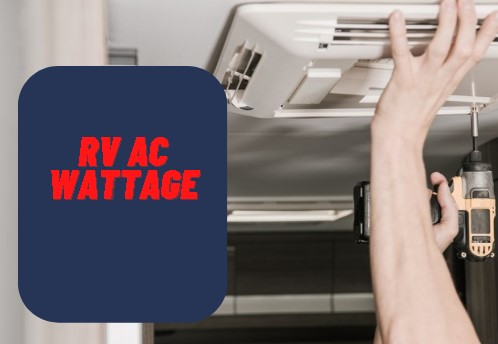RV Air Conditioner Wattage: Understanding the Power Needs of Your Cooling Unit

When it comes to keeping your RV cool and comfortable, one of the most important things to consider is the wattage requirements of your air conditioner. RV air conditioners come in a variety of sizes and types, each with its own unique power needs. Understanding these power needs can help you make an informed decision when upgrading or replacing your unit and can also help you plan for your RV's electrical needs when boondocking or dry camping.
Understanding RV Air Conditioner Wattage
Wattage refers to the amount of electricity an appliance or device uses. RV air conditioners typically require between 600 and 2000 watts of power. The exact wattage requirement will depend on the size and type of the air conditioner, as well as the size of the RV it is installed in.
Factors that Affect RV Air Conditioner Wattage
The two main factors that affect the wattage requirements of an RV air conditioner are its cooling capacity and its energy efficiency. Cooling capacity is measured in British Thermal Units (BTUs), and the larger the RV, the more BTUs it will need to cool it effectively. Energy efficiency, on the other hand, is measured by the unit's SEER (Seasonal Energy Efficiency Ratio) rating, with higher SEER ratings indicating a more efficient unit.
Types of RV Air Conditioners
There are three main types of RV air conditioners: rooftop units, ducted units, and window units.
- Rooftop units are the most common type of RV air conditioner and are typically the most powerful, with cooling capacities up to 15,000 BTU. These units are installed on the roof of the RV and require a higher wattage, usually between 800 and 1500 watts.
- Ducted units are similar to central air systems in a house. These units are installed in a central location within the RV and cool the air with a series of ducts and vents. These are typically less powerful than rooftop units with 800-1300 wattage requirement.
- Window units are less common in RVs but are an option if you are looking for a compact and portable solution. These units are installed in a window and have a cooling capacity of up to 6000 BTU. They usually require between 600-1000 watts.
Sizing Your RV Air Conditioner
When choosing an RV air conditioner, it's important to select a unit that's appropriately sized for your RV. A unit that's too small won't be able to cool your RV effectively, while a unit that's too large will be unnecessarily power-hungry. A good rule of thumb is to choose an air conditioner that can cool every 150 square feet of living space.
Powering Your RV Air Conditioner
RV air conditioners require a significant amount of power, and it's important to make sure that your RV's electrical system can handle the load. Most RVs come with a built-in generator or converter, but it's still a good idea to check your RV's specifications to make sure that it can handle the wattage requirements of your air conditioner.
Portable Generators for RV Air Conditioners
Many RVers find that a portable generator is a great way to provide extra power for their air conditioner. Portable generators come in a wide range of sizes and power outputs, and choosing the right one for your RV air conditioner can be tricky. When selecting a portable generator for your RV air conditioner, you'll want to consider the generator's rated power output, as well as its running power output. The rated power output is the maximum power output the generator can produce, while the running power output is the power output the generator can sustain for an extended period of time.
Boondocking and Dry Camping with an RV Air Conditioner
When boondocking or dry camping with an RV, it's important to be mindful of the power consumption of your air conditioner. You'll want to make sure that your RV has a reliable power source, such as a generator or solar panels, that can handle the wattage requirements of your air conditioner.
Inverters for RV Air Conditioners
An inverter is a device that converts DC (direct current) power to AC (alternating current) power. Many RVers find that an inverter is a great way to provide power for their air conditioner when boondocking or dry camping. Inverters come in a variety of sizes, and choosing the right one for your RV air conditioner can be tricky
Solar Panels for RV Air Conditioners
Solar panels are a great way to provide power for an RV air conditioner when boondocking or dry camping. They are an eco-friendly and cost-effective way to power your air conditioner. A typical solar panel system for an RV air conditioner will include a battery bank and a charge controller, and it's important to choose the right size and number of panels to match the wattage requirements of your air conditioner.
Subscribe
Stay updated with our newsletter
Images provided by: depositphotos.com
Conclusion
RV air conditioners are a crucial component of any RV setup, but they also come with unique power needs. Understanding the wattage requirements of your RV air conditioner is an important part of making an informed decision when upgrading or replacing your unit, and can also help you plan for your RV's electrical needs when boondocking or dry camping. By considering the factors that affect wattage, choosing the right type of air conditioner and ensuring a reliable power source with a generator, inverter or solar panel, you can ensure that your RV stays cool and comfortable on your next adventure.

